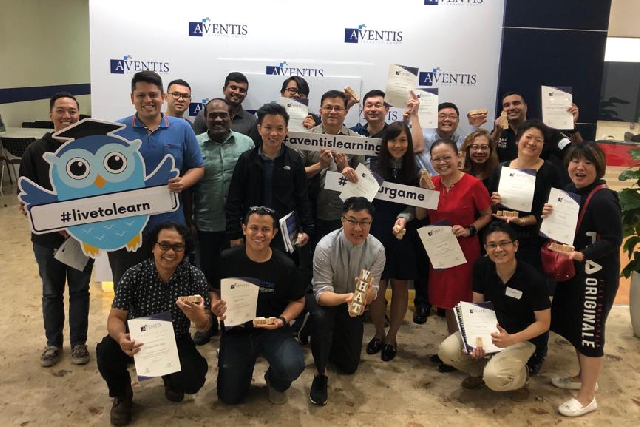Human Resources (HR) is the backbone of every company. Without HR, an organization would likely find it challenging to maintain itself and retain its team members or employees. Human resource operations essentially contribute to the long-term success of an organization. For this reason, human resource management (HRM) has become increasingly popular and vital to almost all industries over the past decades.
HRM essentially refers to the effective management of individuals in an organization or company. It helps bridge the gap between the performance of the employees and the strategic objectives of the organization. With efficient HR, a company can have a competitive edge in the business world. To learn more about why human resources matter and the reasons why you should consider upgrading your HR skills, we will discuss the essential information you should know about human resource management.
Importance of Human Resource Management
The job of an HR manager and their personnel is wide-ranging; their skills and expertise affect various essential business aspects. Here are some areas of business where the skills of an HR manager are highly relevant:
1. People before strategy: a new role for HR leaders
Businesses do not create value; people do. Relevant knowledge of how human capital is critical to the long-term success of any organization. Since a company’s performance depends largely on the fit between people and jobs, HR managers are highly important in crafting and scoping what a particular job entails and realistically assessing whether the assigned individual meets those requirements. Qualified HR leaders will also enhance the company’s performance as HR Business Partners. They administer strategies to ensure the organization reaches its business goals and contribute significantly to corporate decision-making, including assessing current employees and predicting future ones based on business demands.
2. Compensation and benefits analysis
It is part of HR’s job to make sure all the employees receive a fair and competitive amount of salary that is commensurate with their skills and rendered services. An excellent HR manager knows how to formulate and establish realistic compensation structures that make the company’s wages competitive with other businesses in the industry.
Moreover, aside from ensuring the benefits of the employees, HR also has the responsibility to minimise the company’s costs related to turnover, attrition, and hiring replacement workers as much as possible. They are expected to conduct effective negotiations with potential and current employees to strike a balance between there and the company’s interests.
3. Training and development
Structuring an employee training and development program is also one of the duties of HR. These programmes should essentially provide training that supports both the company’s fair employment practices and employee development. HR managers, in particular, are expected to contribute significantly to these programmes to strengthen employer-employee relationships.
4. Employee engagement and job satisfaction
Generally speaking, employee engagement is a workplace method designed to improve an employee’s feelings and emotional attachment to the company. Effective employee engagement will enhance the enthusiasm and dedication of employees toward their job. A successful HR manager knows how to help the company achieve high performance, morale, and satisfaction levels throughout the entire workforce. They do this by coming up with ways that forge solid employer-employee relationships, such as administering employee opinion surveys, seeking employee input on job satisfaction, conducting focus group discussions, and more.
HR is also the one that facilitates a healthy work culture in the company, which is crucial in bringing out the best in the employees. An effective HR manager contributes significantly to the creation of a healthy and friendly work environment, which eventually translates into better productivity among the workers. In essence, a good HR knows how to prevent employees from quitting and encourage them to work harder.
5. Recruitment and hiring
The company’s recruitment and hiring processes are also within the bailiwick of HR. From screening resumes to scheduling interviews and processing new hires, HR personnel oversee and manage the entire process to make sure they hire the right people. In line with this, they usually determine the most effective techniques for recruiting applicants, such as analysing which tracking systems are the best fit for the company’s needs.
When it comes to hiring employees, HR is expected to work closely with the hiring managers and guide them in making wise hiring decisions according to the needs of the company’s workforce. They are mainly required to provide guidance to managers who are not familiar with HRM or the standard hiring processes.
6. Compliance
Every country has employment laws that primarily seek to protect the interests of both the employees and the employers. As for HR, part of their job scope is to make sure that the organization complies with the said employment laws. They complete the necessary paperwork that documents the company’s employees as all eligible to work in Singapore, and they keep records of hiring processes and applicants’ logs, among others.
Essential HRM skills to develop
As HR managers and personnel play a vital role in an organization, they should ideally possess a broad spectrum of skills that are crucial to business success. Acquiring and upgrading these skills is vital to ensure they carry out their responsibilities more effectively.
Here are some essential skills you need to have if you want to become an efficient HR manager:
- Organisational skills
- Communication skills
- Adaptability skills
- Decision-making skills
- Negotiation skills
- Problem-solving and conflict management
- Data-driven and analytical skills
- Budgeting skills
- Training and development skills
- Strategic orientation
- Team orientation
- Empathetic skills
Be a Masters in Global HR Management Graduate
At Aventis Graduate School, we pride ourselves on offering a wide range of SHRM-approved Recertification and IHRP (Singapore) HR Graduate Diploma and Masters programmes. Come join us for the Roehampton University, London, Masters in Global Human Resources Management!
Our proud alumni, Ms. Pearlyn Oh, Group Human Resources Manager from D.G.Pal NFTs, shares her educational Aventis journey:
“Sleepless nights, firefighting assignments, weekend full-day lectures, changing to hair loss shampoos, a bunch of silver lines growing from my head…” I guess it is all worth it in exchange for adventures that challenged me both personally and professionally. I’ve officially levelled up! To my family, friends, mentors, classmates, professors, and everyone else who supported me through this journey—THANK YOU!
I am also extremely grateful to have really supportive superiors in achieving this personal milestone. They back me up with flexible arrangements and frequent check-ups, allowing me to fine-tune both work and study to the right balance. I’m looking forward to the UK graduation ceremony with my peers once we get through this extraordinary period! “

Aventis Graduation Ceremony Singapore
Conclusion
The importance of human resource management covers a myriad of areas, ranging from strategy planning to company reputation. HR managers who are equipped with a wide range of skills and well-rounded expertise provide several services to employees that are essential to the organization’s overall success.

Aventis learners and Lead Faculty, Dr Christopher Fong
That said, if you are looking for a fundamental and fulfilling career, HRM might be the one for you! Begin your human resource journey with Aventis Graduate School’s Singapore Masters in Human Resource Management programme. We are an established and reputable educational institution with over 15 years of a positive track record and more than 3,000 successful alumni. In accordance with our motto – aspire to new ambitions, achieve career success, and accomplish meaningful goals – we have seasoned and dedicated instructors in a wide range of programmes, including Masters in Global Marketing, Finance and Accounting, Psychology, and Executive MBA courses in Singapore, among others. With our quality education, you can be assured that you can acquire and upgrade your HR skills with relative ease!